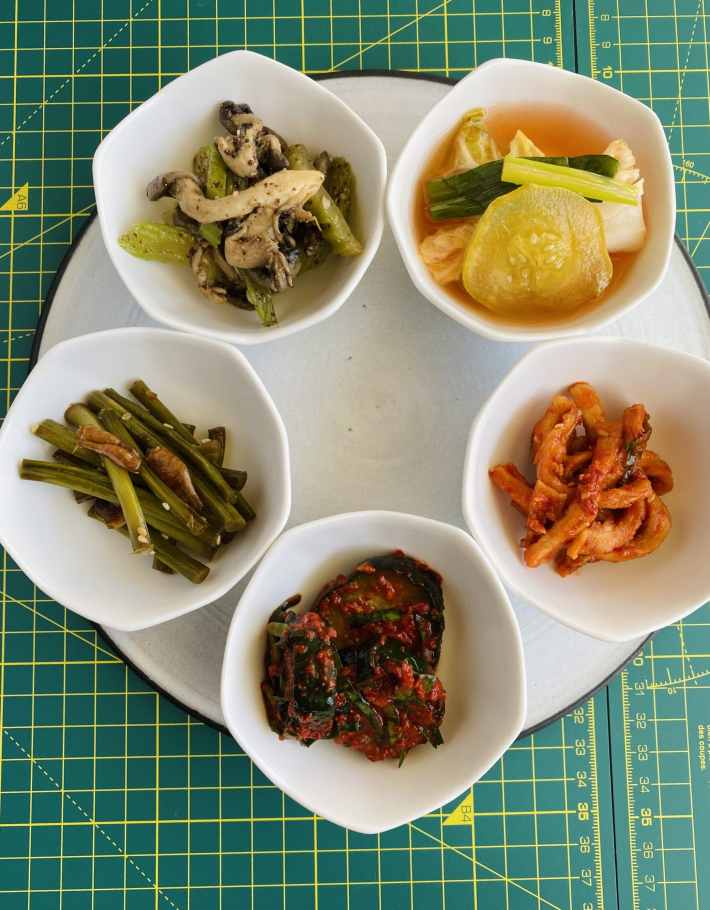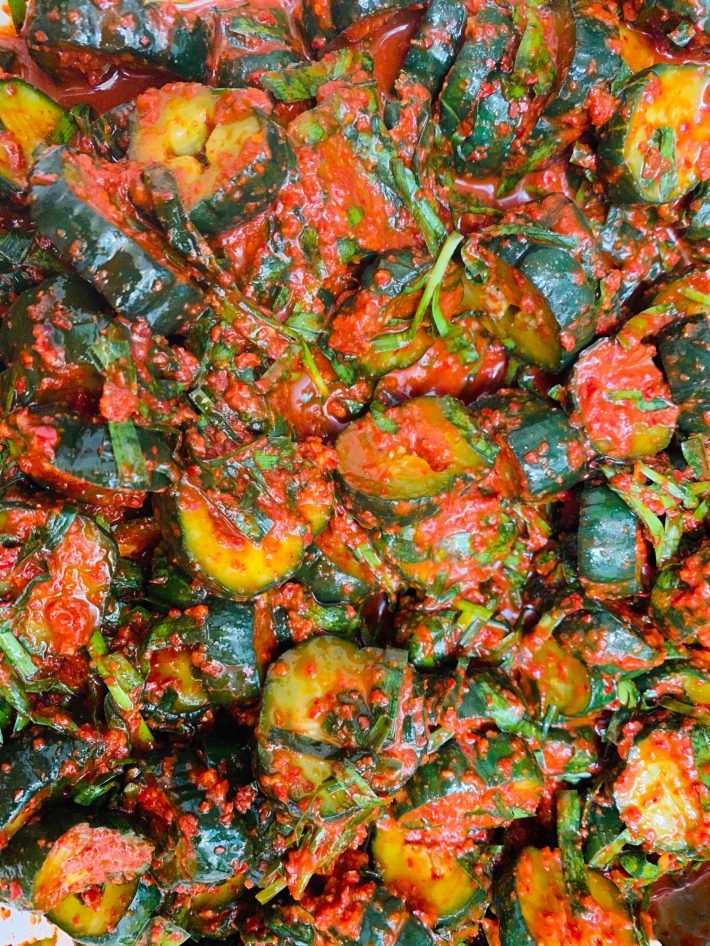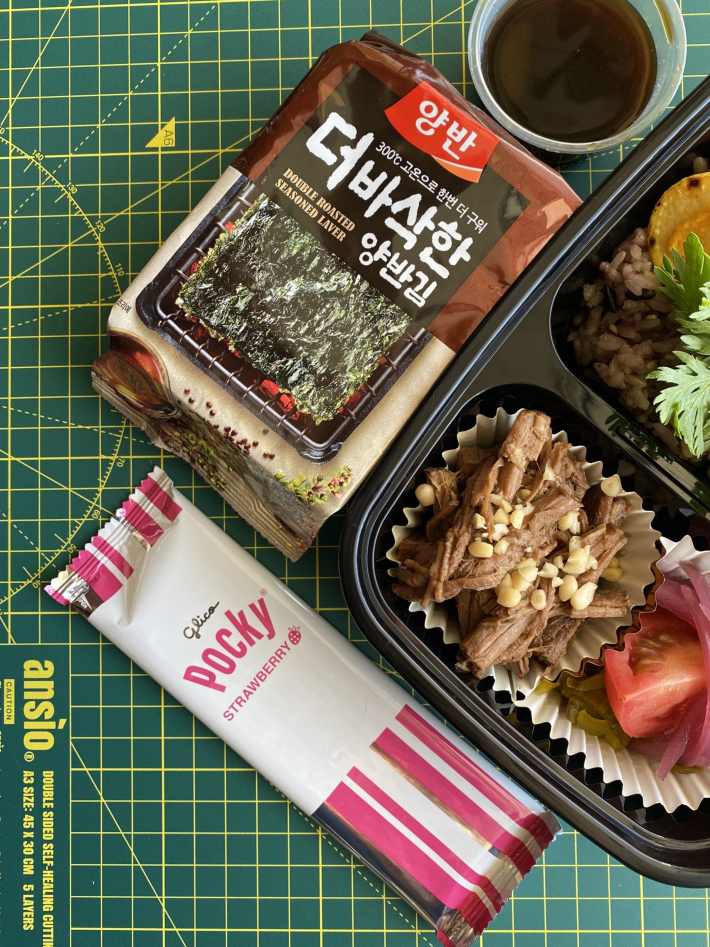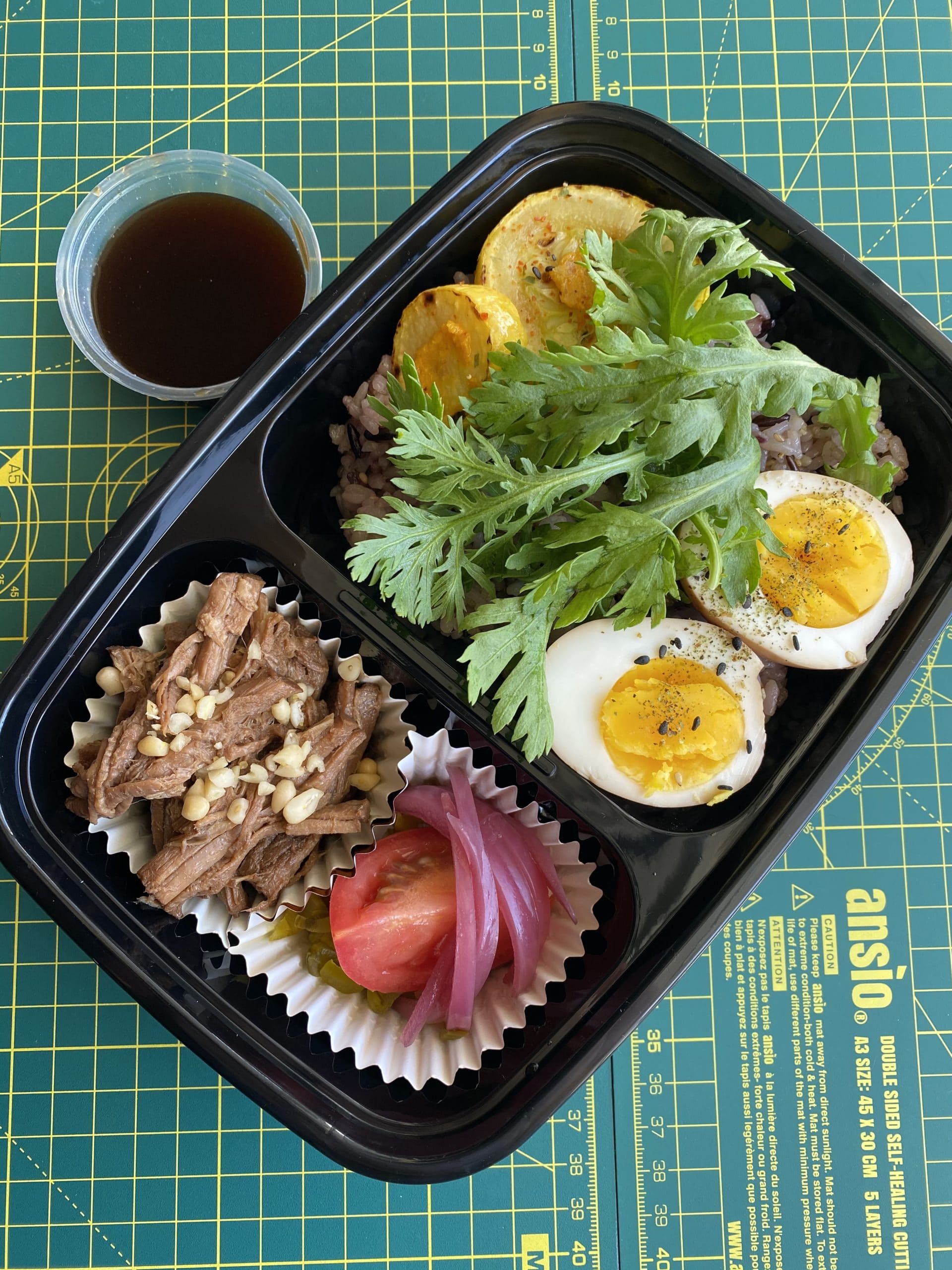[dropcap size=big]T[/dropcap]hey say boredom breeds creativity and in this case, the quarantine may have birthed the best and most satisfying Korean lunches that Los Angeles has ever seen.
While rustic sourdough and other every single variation of banana bread may have hogged the spotlight as the official foodstuff of the pandemic, I’ll remember as the spring of dosirak, the Korean equivalent of a bento box.
Specifically, the most thoughtful and ornate dosirak prepared by Susan Yoon, the Chef de Cuisine at Michelin-starred Orsa & Winston in Downtown L.A.Yoon was orchestrating the kitchen’s six-course tasting menu alongside a casual a la carte concept during lunch service before quarantine measures went into effect. Since being furloughed, she began making limited quantities of lunchboxes available to friends on a first-come, first-serve basis. It was an informal order-and-take out situation via Instagram. On good days, up to 18 lucky individuals had the pleasure of picking up and feasting on dosirak from her modest hillside home in Mount Washington. Yoon is yet another skilled chef who has created a side hustle for herself in the age of COVID-19 to stay afloat.

“Except for trips out for groceries, I’ve been staying at home,” says Yoon, “But I was so used to working and cooking all day, I began refocusing my energy to make foods I liked, using the kitchen as a form of escapism.”
While Angelenos are happy to fan the flames of their affections for Korean barbecue, dosirak is still practically an unknown amongst non-Koreans in a city otherwise well-versed in the culture’s culinary and pop-cultural diaspora. Packed with rice, a selection of side dishes, and a protein in the form of fish or egg, the compartmentalized lunch sets offer a portioned range of flavors and textures—offering what I like to think as a miniature buffet in a box.
Yoon hopes to continue the effort, noting preparing foods fading from the collective memory of younger Korean generations ignorant or averse to such great efforts does grant a level of satisfaction.
Accordingly, Yoon’s dosirak brims with “a little bit of this, a little bit of that”, filled with dishes she describes as “mom food.” Her first lunchbox was an ambitious multi-dish extravaganza, filled with all the standard-issue Korean mom staples: stir-fried anchovy, soy pickled egg, kkakdugi kimchi (pickled daikon), fermented and braised sprouting Napa cabbage from Thao Family Farms, fish cakes, soba noodles, and a bed of rice. My most recent lunch order featured jangjorim, slow-braised shredded beef—unguent and savory—paired with the crunch of mumallengi muchim, spicy seasoned dried radish strips.

While meat makes a regular appearance in her lunches, Yoon mostly avoids the greatest hits of Korean fare, focusing more upon the B-sides of Korean cooking relying upon fermentation, braising, and other expressions of slow preparation intended to coax flavors from modest ingredients.
“I would love to keep doing it though. It's a nice way to get in touch with my roots and also ensures Korean food is always in the house, so I don’t have to dip into my mom’s stash.”
“I'm not intentionally avoiding any popular dishes. I just happened to focus more on the banchan aspect of the meal,” says Yoon, “I love eating a Korean meal with a variety of side dishes, kimchi, and pickles. Dosirak offers the perfect vehicle to showcase these favorites in a single meal.”
Unsurprisingly, the economics of such time and effort-intensive dishes isn’t profitable at such a small scale. Nor does Yoon’s modest-sized home and tiny kitchen make cooking for so many, in such quantities an easy proposition. Yoon keeps it real, “I wanted to keep the prices reasonable since I know many people are on a budget, but I definitely won't be able to support myself doing this as a job with this level of production,” reveals Yoon. “Every banchan is essentially a dish in of itself. Factor in the cost of ingredients, packaging, and the limitations of practicing social distancing…”

Still, Yoon hopes to continue the effort, noting preparing foods fading from the collective memory of younger Korean generations ignorant or averse to such great efforts does grant a level of satisfaction. “I definitely think many of my Korean customers appreciate the work even more because they know how much time and effort goes into making all of the different dishes. They’ve seen their own mom making these foods growing up.”
Yoon is sanguine about continuing with her lunch service as long as there is demand, and she has the time to prepare them. But there is always the looming likelihood she’ll be returning to work once quarantine measures are lifted.
“I would love to keep doing it though. It's a nice way to get in touch with my roots and also ensures Korean food is always in the house, so I don’t have to dip into my mom’s stash.”
Follow Susan Yoon on Instagram to see when she will offer dosirak again. Her orders are limited.






